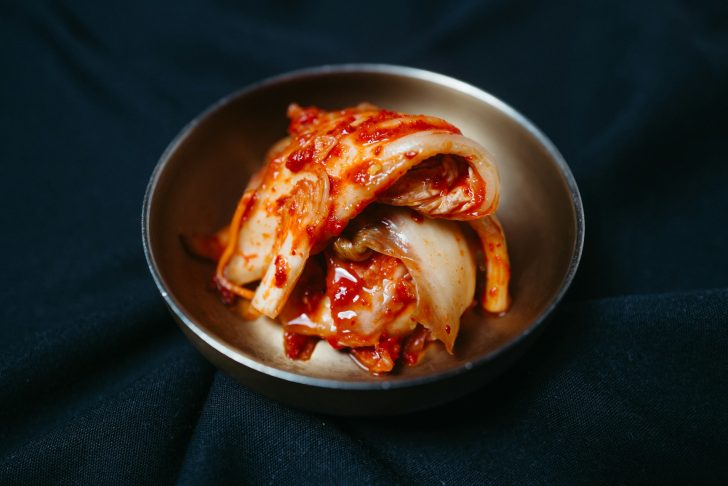A new study from the University of Connecticut shows that spicy ancient foods, especially kimchi, can help lower blood pressure, manage cholesterol, and improve blood sugar levels.
If you have ever had kimchi, you know it has got a kick. This fermented Korean dish packs heat with garlic, ginger, and Korean chili flakes. It has been around for centuries, eaten daily in Korea with nearly every meal. Now, researchers say it might be doing more than spicing up your taste buds. It could be protecting your heart.
The Gut-Heart Connection Is Real
The key to kimchi’s power lies in fermentation. This process fills it with probiotics, the good bacteria that keep your gut in balance. And that balance plays a major role in heart health. Scientists are starting to see how gut bacteria can affect inflammation, blood pressure, and even cholesterol levels.

Portuguese / Unsplash / Dr. Shad Marvasti, a heart health expert in Arizona, calls kimchi a “superfood.” He points to its probiotic punch as a natural tool to fight disease.
When your gut works better, everything else tends to follow, especially your heart.
Capsaicin, the Chili Compound, Is the Real MVP
Chili peppers are the fire behind kimchi’s flavor. Their active ingredient, capsaicin, is showing serious health benefits. Capsaicin lowers chronic inflammation and oxidative stress, two major causes of heart disease.
Think of inflammation as tiny fires in your arteries. Over time, these fires cause plaque to build up. That plaque hardens and clogs your blood vessels. Capsaicin helps cool those fires down. It keeps arteries flexible and healthy, so blood flows more easily and pressure stays low.
Ancient Diets Had It Right All Along
Long before science stepped in, cultures across Asia, Central America, and the Middle East were cooking with chilies. These ancient foods weren’t just for flavor. They were part of daily life. People in those regions often lived longer, healthier lives, and now we might understand why.
Modern research is just catching up. It turns out those traditional diets were rich in natural anti-inflammatory ingredients. Foods like kimchi were delicious and medicinal. Ancient knowledge wrapped in red pepper flakes and fermented cabbage.
Spicy Food Helps Tackle Cholesterol
Capsaicin doesn’t stop at inflammation. It also helps balance cholesterol. Studies show it breaks down LDL, the bad cholesterol, and helps raise HDL, the good kind. That is big news because high LDL levels can clog arteries fast, raising your risk of heart attacks and strokes.

Dan / Unsplash / If spicy food can help clear that out naturally, that is a win. And for people who struggle with high cholesterol or want to avoid statins, adding some fire to their plate might be worth a try.
Plus, capsaicin speeds up your metabolism. It increases body heat, which helps you burn calories faster. That is known as ‘thermogenesis.’ A faster metabolism makes it easier to maintain a healthy weight, and that’s a major factor in keeping heart health on track.
You Don’t Have to Move to Korea!
The best part? You don’t need to fly across the globe to eat for heart health. Kimchi is now sold in most grocery stores, often near the tofu or pickles. It is easy to add to stir-fries, sandwiches, or even scrambled eggs. And if you are into DIY, making it at home is simple with the right recipe and some patience.
Fusion food is making spicy health hacks even easier. Kimchi tacos, kimchi fried rice, and even kimchi grilled cheese bring the same benefits in a fun, modern way. Just watch out for brands with too much added sugar or sodium. Go for fresh, small-batch versions when possible.
